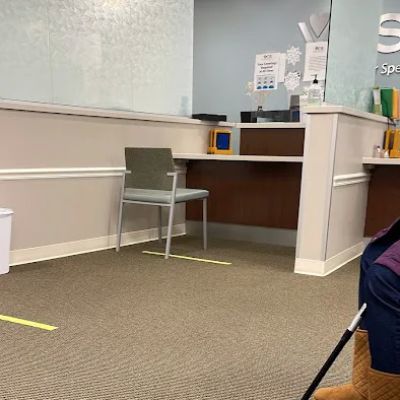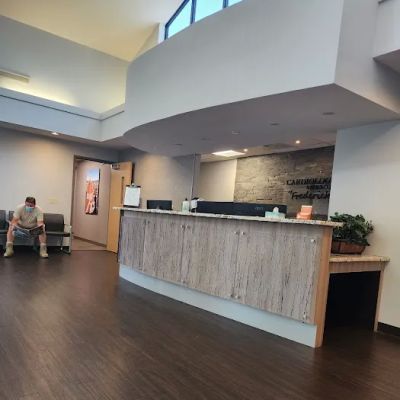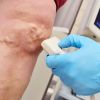- the-hidden-link-between-heart-disease-and-sleep-disorders
- why-poor-sleep-is-a-serious-cardiovascular-risk-factor
- common-sleep-disorders-that-impact-heart-health
- a-patient-story-from-sleepless-nights-to-heart-awareness
- what-science-says-about-sleep-duration-and-cardiac-function
- treatment-and-prevention-approaches-for-better-sleep-and-heart-health
- how-heartcare-hub-guides-you-to-better-sleep-and-cardiovascular-resilience
1. The Hidden Link Between Heart Disease and Sleep Disorders
At first glance, sleep and heart health might seem like two separate issues. But medical research increasingly shows a tight and troubling connection between heart disease and sleep disorders. Poor sleep doesn’t just leave you groggy — it strains your cardiovascular system, raises blood pressure, and increases inflammation.
According to the CDC, adults who consistently sleep fewer than six hours a night are significantly more likely to suffer from heart attacks, strokes, and irregular heart rhythms. The body depends on restorative sleep to regulate blood pressure and repair arteries. Without it, the cardiovascular system becomes overworked, especially during stress and activity.
As heart-related complications continue to rise across the U.S., sleep is emerging as a critical — yet often ignored — component of prevention. The connection between sleep and cardiovascular health is complex but crucial, and understanding this link is essential for anyone looking to protect their heart long-term.

2. Why Poor Sleep Is a Serious Cardiovascular Risk Factor
Sleep is not a luxury — it’s a biological necessity that supports nearly every system in the body, especially the heart. During deep sleep, the body undergoes crucial physiological repairs: blood pressure dips, inflammation markers drop, and the heart gets a break from daily stressors.
When sleep is fragmented — due to insomnia, frequent waking, or sleep apnea — the body misses these restorative periods. This leads to chronic stress, elevated cortisol, and increased heart rate, even during rest. Over time, the damage adds up.
Multiple longitudinal studies, including one from the American Heart Association in 2021, link short sleep duration and poor sleep quality with a 48% increased risk of developing coronary heart disease. Another key finding? People who snore heavily — often a sign of untreated sleep apnea — have twice the risk of stroke or heart failure compared to non-snorers.
Sleep loss impacts your cardiovascular system in both subtle and severe ways — from silent blood pressure elevation to heart rhythm abnormalities. That’s why cardiologists are increasingly screening patients for sleep issues as part of routine heart health assessments.
Capital Health Medical Center – Hopewell
capital health medical center hopewell
1 Capital Way, Pennington, NJ 08534, USA

3. Common Sleep Disorders That Impact Heart Health
Not all sleep issues are created equal, and some carry far greater cardiovascular risk than others. Here are the most studied conditions linking heart disease and sleep disorders:
- Obstructive Sleep Apnea (OSA): Caused by blocked airways during sleep, leading to repeated oxygen deprivation and blood pressure spikes. Strongly linked to hypertension, atrial fibrillation, and stroke.
- Insomnia: Chronic difficulty falling or staying asleep. Often leads to elevated cortisol levels, which stress the heart over time.
- Restless Legs Syndrome (RLS): Disrupts sleep continuity, reducing the duration of deep, restorative stages of sleep.
- Shift Work Sleep Disorder: Affects those working irregular hours, which can disrupt the circadian rhythm and raise cardiovascular risk by over 20% according to NIH findings.
The challenge? Many people don’t recognize these disorders until symptoms become severe. That’s why early detection and proper management are key to protecting long-term cardiovascular health.
4. A Patient Story: From Sleepless Nights to Heart Awareness
Karen, a 46-year-old schoolteacher from Pennsylvania, never considered herself unhealthy — she ate fairly well and walked daily. But she struggled with insomnia for over a decade. “I’d lie in bed with my heart racing and thoughts spinning. I just assumed it was stress,” she recalls.
Eventually, routine bloodwork showed early signs of hypertension. Her doctor referred her to a sleep clinic, where she was diagnosed with chronic insomnia compounded by nighttime anxiety. After a tailored sleep therapy plan and mild medication, her sleep quality improved. Within four months, her blood pressure returned to normal levels.
Karen’s story, shared through the HeartCare Hub blog, is not unusual. Many people overlook poor sleep as a health risk, yet it may be the silent driver behind their cardiovascular issues. Her case highlights the importance of seeing sleep as a medical — not just lifestyle — issue.
5. What Science Says About Sleep Duration and Cardiac Function
Research consistently shows that both too little and too much sleep can harm the heart. The optimal range? Seven to nine hours per night. Going below or above this window can lead to increased inflammation, disrupted blood sugar control, and higher triglyceride levels — all of which increase heart disease risk.
A Harvard Health study in 2022 followed 160,000 participants and found those sleeping fewer than six hours a night had a 20% greater chance of developing cardiac events. Interestingly, those sleeping over nine hours faced similar risks — suggesting that quality and consistency are just as important as duration.
Sleep fragmentation, even without a decrease in total time, was also found to raise nighttime blood pressure, a known risk factor for stroke and aortic stiffness. This is especially concerning in people over 50, who are already at elevated risk.
The takeaway? It's not just about clocking hours. Deep, uninterrupted sleep is essential for maintaining optimal cardiac rhythm, blood pressure control, and overall vascular health.
6. Treatment and Prevention Approaches for Better Sleep and Heart Health
Improving sleep isn’t just about comfort — it can be life-saving when it comes to cardiovascular health. If you're dealing with both heart disease and sleep disorders, here are key strategies to pursue:
- Sleep studies and diagnosis: If snoring, gasping, or fatigue are present, a sleep test (polysomnography) can diagnose apnea or other conditions.
- CBT-I (Cognitive Behavioral Therapy for Insomnia): A first-line, non-drug approach to resolving long-term sleep issues.
- CPAP therapy: For apnea patients, this device keeps airways open and drastically reduces heart risk.
- Sleep hygiene practices: Regular sleep schedules, limiting caffeine, screen curfews, and a cool dark room all contribute to deeper rest.
Lifestyle changes like quitting smoking, reducing alcohol, and managing stress also significantly improve both sleep and heart health. For personalized support, HeartCare Hub offers guided tools and product recommendations to help users build sustainable sleep routines.
7. How HeartCare Hub Guides You to Better Sleep and Cardiovascular Resilience
At HeartCare Hub, we believe that optimal heart health begins with everyday habits — and sleep is one of the most powerful. From educational resources to cardiologist-backed product guides, we help users understand and address the root causes of both sleep disorders and cardiovascular risk.
Whether you're looking for a home sleep monitor, effective blackout curtains, or a referral to a sleep specialist, our curated recommendations are tailored to support heart-conscious living. We also feature real patient stories, expert Q&As, and the latest research so you can make informed choices with confidence.
If you're concerned about your sleep or already managing heart disease, don’t wait for symptoms to worsen. Start building a healthier sleep routine today — your heart will thank you tomorrow.





















Deborah Heart and Lung Center
deborah heart and lung center
200 Trenton Rd, Browns Mills, NJ 08015, USA